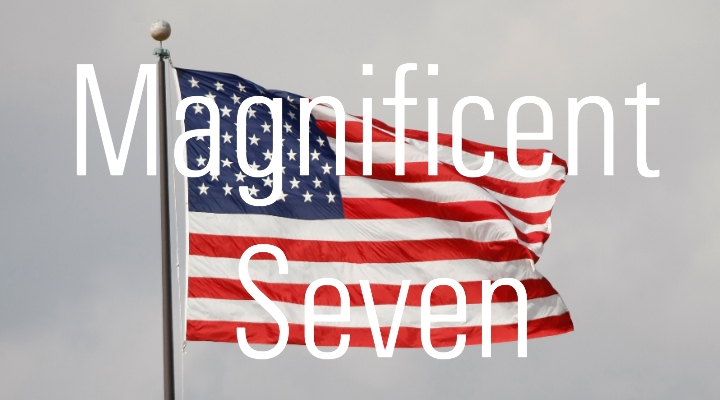
Stage #1: Concept Stock
When I first wrote about Digital World Acquisition Corp. in January 2022, its business operations were merely an idea. To be sure, DWAC existed. It was a special-purpose acquisition company, or SPAC, established for the purpose of buying another firm. DWAC's value consisted of its commitment to buy the privately-held Trump Media & Technology Group, which had yet to offer a product.
I researched DWAC's stock conventionally, evaluating four scenarios for Trump Media's business possibilities, ranging from bearish to strongly bullish. The upshot: because the ex-president would receive majority ownership when the transaction was completed, retail shareholders would be greatly diluted. They would lose money unless the company's value exceeded $10 billion (£7.6 billion).
The responses to that column showed I had misread the situation. The comments were entirely motivated by politics. Not a single reader addressed my numbers. In doing the fundamental analysis, I had whistled into a hurricane.
Stage #2: Emerging Growth
One month after my article ran, Trump Media debuted its social media platform: Truth Social. Although the launch attracted far more attention than is customary with new businesses, its media reception was similar. Trump Media's public relations department crowed about its initial success. Some outlets dutifully republished the company's releases, while others were sceptical, presenting counterevidence. In other words, the business press behaved as usual.
Although the business had yet to report results, DWAC investors became wary. As is often the case with concept stocks – or with most other things, come to think of it – the anticipation trumped the reality. Closing at $92.90 the day after Truth Social's inception, DWAC's stock began a long, painful slide. Eighteen months later, its price bottomed at $12.46, making for an 87% loss. Ouch!
Contributing to the stock's problems were ongoing Securities & Exchange Commission (SEC) investigations, which continually delayed the acquisition. Originally scheduled for September 2022, the purchase date was initially postponed to June 2023, and then pushed back again. Management was also forced to restate its financial statements, as the SEC determined several of its filings had been materially in error.
Stage #3: Hibernation
By summer 2023, the bloom was thoroughly off the rose.
Not only were market research sites reporting low adoption rates for Truth Social, but its business model had lost favour. Elon Musk's purchase of Twitter had highlighted the industry's woes. Because few users will pay for social media services, suppliers rely upon advertising revenue – and advertisers have fled sites with political controversies.
Finally, SPACs were in disrepute, as most of their stocks had performed poorly.
Read more from John Rekenthaler: Why SPACs Are a Racket
In short, DWAC looked to be dead in the water. Its acquisition had been deferred and its executives rebuked. Meanwhile, the company that it planned to buy was struggling. Under such conditions, SPAC investors typically veto the scheduled deal, thereby forcing the organisation to return the par value of their shares.
However, as I learned after publishing my 2022 column, Donald Trump's presence changes the ordinary rules. After all, DWAC was not buying any business; it was purchasing one that would be owned, branded, and promoted by the ex-president. Big difference! Millions of potential investors who otherwise would not have bothered with DWAC wished to care. They just needed a reason.
Stage #4: Rejuvenation
They found it in January of this year, when the oft-postponed merger finally appeared on the horizon. By then, Trump Media's financial results had been released, as part of DWAC's filing process, and they were breathtakingly bad. Not only had Truth Social received only $2.3 million in revenue during the first six months of 2023, but business had been flat during the following quarter.
To greatly understate the matter, those results failed to meet the company's projections. In October 2021, Trump Media had provided its initial financial forecast. After posting negligible revenue in 2022, the presentation stated, Trump Media would post $144 million in sales in 2023, followed by $835 million this year. Not so much! (By now, most of Trump Media's revenues were projected to come not from its social media site, but instead from an entertainment streaming service called TMTG+. However, the latter has never been created.)
None of which, of course, has mattered to investors. The newly public Trump Media & Technology Group (DJT), which consists of the merger of DWAC’s $300 million cash position and the Truth Social platform, is worth a great deal. How much, exactly, is unclear. The Wall Street Journal's James Mackintosh valiantly tackled the math, which is tricky because the level of shareholder dilution depends upon several circumstances, but his appraisal did not match the company's. Since Trump Media's representatives did not respond to his questions, the issue remains unresolved.
Stage #5: Cryptocurrency
Many observers have called Trump Media a meme stock, but the label does not fit.
Meme stocks consist either of established firms that have stagnated, such as 2021's stars, or they are growth stories, as with this year's heroes. In either case, meme stock investors care about their companies' business operations.
When I wrote in January 2021 about GameStop (GME), several shareholders quarreled with my assessment of the company's prospects. But business results are not the issue with Trump Media. If they were, the DWAC transaction never would have been consummated, and DJT stock never would have come to market.
Trump Media is instead a cryptocurrency. As with bitcoin, people buy Trump Media not for future cash flows but because: 1) they expect its price to rise, and; 2) they feel an affiliation for the asset. Bitcoin owners are members of a club. So, too, are Trump Media investors, to an even greater degree. For them, DJT shares represent a currency by which they can express their beliefs and commitment.
Which is why I will make no forecasts about Trump Media's stock price. In January 2022, I offered my view on DWAC – correctly, it turned out. I will not make a second attempt as the normal investment rules no longer apply. Predicting DJT's fortunes is like predicting the direction of bitcoin. Others may try, but not me.
Update
When this column was originally published, I stated that Trump Media & Technology Group's DJT annual revenue had "plateaued", which is terrible for a company that was only in its second year of operations. As it turns out, I was too kind.
On 1 April, SEC filings revealed that, after treading water in the third quarter of 2023, Trump Media's revenue dropped sharply in the fourth quarter. During the first nine months of the year, the company's sales were an annualised $4.5 million. In the final quarter, they sunk to an annualised $3 million.
The market's reaction has cast doubt on my claim that Trump Media is a form of cryptocurrency, owned by people who do not expect the business to ever generate cash. Per that logic, Trump Media's operational results are beside the point because everybody realises that the company lacks meaningful business prospects. Yet the stock has lost 25% of its value since the filing was released, suggesting Trump Media shareholders do, in fact, care about the business results.
John Rekenthaler is vice president of research at Morningstar





























